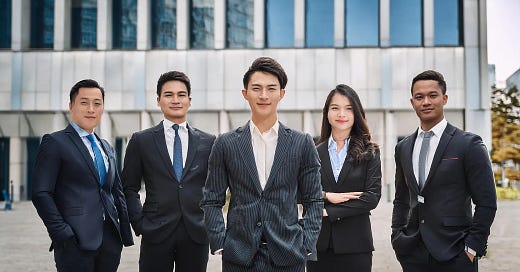Diplomacy, multiculturalism, and South Korea
Will we ever see a multicultural Korean ambassador?
In an increasingly interconnected world, the role of immigrants in shaping a nation’s diplomacy has gained considerable attention. Particularly in multicultural countries like Australia, Canada, and the United States, the 1.5 and 2.0 generation immigrants—those who have immigrated at a young age or were born to immigrant parents—play a pivotal role in fostering diplomatic relationships.
The unique experiences and perspectives of 1.5 and 2.0 generation immigrants can bridge cultural divides and create a more inclusive foreign policy framework.
In multicultural nations, 1.5 and 2.0 generation immigrants often serve as vital conduits between their countries of origin and their new homes. Their bilingual abilities, cultural fluency, and understanding of both societies enable them to navigate complex diplomatic landscapes.
For instance, in Canada, the diverse backgrounds of its populace enhance the country’s diplomatic relationships with a range of nations. Young leaders from immigrant backgrounds often participate in government, NGOs, and international organizations, bringing nuanced perspectives that can inform policy decisions.
These immigrants often embody the values of multiculturalism, promoting dialogue and understanding. They can leverage their unique positions to foster connections that transcend traditional geopolitical boundaries. In Australia, the rise of leaders with immigrant backgrounds in both politics and business has been instrumental in strengthening ties with Asia and other regions, making Australia a more agile player on the global stage.
There is no better example than Australia’s current Foreign Minister, Penny Wong. Penelope Ying-Yen Wong was born in Kota Kinabalu, Malaysia. She is of English-Australian and Chinese Malaysian heritage, and speaks Cantonese, Hakka, Bahasa Malaysia and of course English. She is the epitome of diversity and her foreign policy ideas (and skills) reflects this.
In contrast, South Korea's limited engagement with immigration presents significant challenges for its foreign policy, stifling its ability to connect with the global community.
South Korea has maintained a relatively homogeneous population, with immigration levels significantly lower than those of many Western nations. This lack of diversity hinders South Korea’s ability to cultivate the same depth of understanding in diplomatic relationships. The country’s historical focus on ethnonationalism led to a resistance to immigration, resulting in a limited understanding of global dynamics.
While immigration is increasing, there are still no multicultural faces in the Ministry of Foreign Affairs Korea National Diplomatic Academy (KNDA) graduation photos and only one or two (who face extremely difficult challenges) in the National Assembly.
As a professor at a leading university in South Korea, I have seen numerous, extremely talented, 1.5 and 2.0 generation students pass through. A number of them are keenly interested in contributing to South Korea and joining the public service. They would love the opportunity to work in the diplomatic service. However, to date, none have been accepted.
Homogeneity has implications for South Korea’s foreign policy. Without the insights and connections that a diverse populace can provide, South Korea often struggles to engage effectively with countries that are culturally and politically different. The country’s approach to diplomacy can sometimes feel rigid and outdated, lacking the cultural nuance that might facilitate deeper international relationships.
The disparity in the diplomatic influence of immigrant generations highlights the broader implications of a multicultural versus a homogenous society. Countries like Canada and Australia benefit from diverse viewpoints that enrich policy discussions and enable innovative solutions to global challenges. In contrast, South Korea's limited immigrant presence means it may miss opportunities for collaboration and understanding, leading to potential diplomatic missteps.
As the global landscape continues to evolve, South Korea may find itself at a disadvantage if it does not adapt its approach to immigration and diversity. Embracing a more inclusive stance could enhance its diplomatic capacity, fostering a deeper engagement with a world that is increasingly interconnected.
The role of 1.5 and 2.0 generation immigrants in multicultural countries is crucial for shaping dynamic and responsive foreign policies.
The United States, Canada, and Australia and numerous other countries have appointed 1.5 and 2.0 generation immigrants to public service with many serving in South Korea - some at the highest levels. Their experiences and insights create a richer, more nuanced diplomatic landscape. In contrast, South Korea’s limited immigration strategy presents significant challenges, hindering its ability to connect with the global community effectively.
As the world becomes more interconnected, embracing diversity may not just be an ethical imperative for South Korea; it is also a strategic necessity for its future in global diplomacy.



